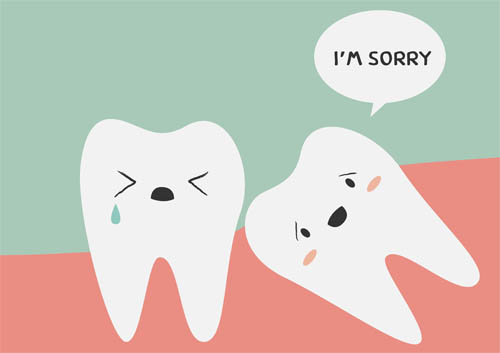Choose Chocolate on Valentine's Day
February 8th, 2023

From a student handing out sweets for her classmates to an older married couple exchanging boxes of candy, Valentine’s Day is the time of year when people like to show affection by gifting sugary treats to their loved ones. Whether you’re on the giving or receiving end of Valentine’s Day candy, you can celebrate the holiday in a healthier way by making dark chocolate your confection of choice.
Contribute to Your Health
According to the Cleveland Clinic, studies have shown that the cocoa beans used to make chocolate contain flavonoids, which can help protect the body against damage from various toxins. Flavonoids may also help lower blood pressure and improve blood flow to the heart and the brain. Dark chocolates typically contain a higher amount of flavonoids than other types, making them a great choice for chocolate lovers. However, you should keep in mind that many companies produce chocolate that is so heavily processed that the flavonoids are largely eliminated. Your best bet is to look for high-quality dark chocolates and cocoa powders that have undergone minimal processing.
Protect Against Cavities
If you think there’s no way candy could ever be beneficial for your teeth, think again. The Texas A&M Health Science Center has reported that the tannins present in cocoa beans may actually help prevent cavities by interfering with bacteria’s harmful interaction with teeth. Just like with flavonoids, tannins have been found to be present more often in dark chocolates, rather than milk chocolates, giving you another great reason to choose the richer, sweet varieties.
Avoid a Sticky Situation
One more benefit of choosing chocolate over other candies is that it is less likely to get stuck in the crevices and spaces between teeth. Gooey sweets like taffy can stay lodged in the mouth for longer periods of time, putting you at a greater risk for developing cavities. When you choose your chocolate, be sure to avoid types that also contain sticky ingredients like caramel or marshmallow, and instead opt for the plain varieties.
Remember that the health benefits you can receive from dark chocolate are largely based on eating the candy in moderation. With that being said, it’s easy to make this delicious and health conscious switch when you’re out shopping for your sweetheart, friends, loved ones, and yourself. Have fun satisfying your sweet tooth this year and Happy Valentine’s Day from all of us at Ferndale Family Dental!





 Website Powered by Sesame 24-7™
Website Powered by Sesame 24-7™